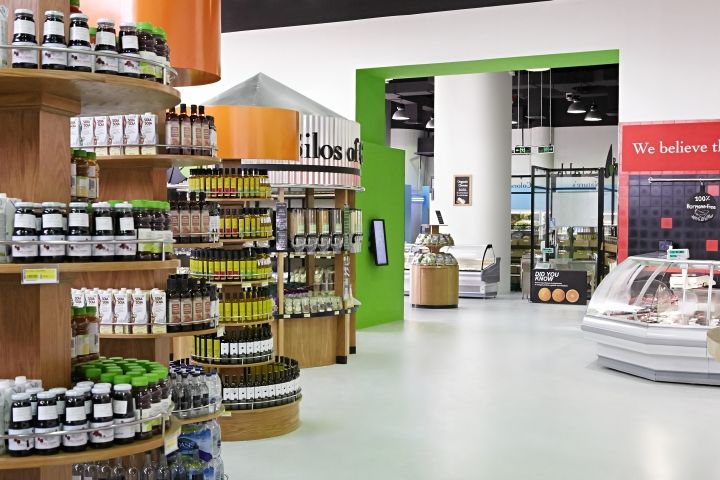Health food store – StartupSmart

As consumers increasingly gravitate towards products that enhance their health and wellbeing, the health food industry reaps the rewards, helped along by factors such as an ageing population and fears of an obesity “epidemic”.
The sector is potentially profitable for the right start-up, but what is actually involved in setting up a health food store?
What is and who is it suited to?
Running a health food store is typically centered around health and organic foods, local produce and nutritional supplements. Health food stores also cater for people with special dietary needs such as people with allergies or diabetics, vegetarians and vegans.
Running a health food store would suit someone who has a genuine interest in alternative medicine, special food diets and the environment.
Although almost any entrepreneur with good business sense would be able to run a health food store, it certainly helps if you believe in what you’re promoting.
A concern for food producers and a natural weariness of pesticides and GM foods will enable you to convincingly sell the idea of healthy, natural produce.
In additional to an extensive product or nutritional knowledge, qualifications in nutrition or dietetics are valuable and can add credibility to your sales pitch.
Rules and regulations
As with all shop-based businesses, it’s important to contact your local council to ensure you’re following the correct health and safety regulations while you start your business.
There are also specific rules you must follow when you start trading. For example, you need to ensure any suppliers of organic produce have organic certification.
According to Australian Certified Organic, an organic certifying group will audit a business’ methods to ensure they comply with national standards for organic farming and processing.
“Many people have their business certified to reassure wholesalers, retailers and consumers that their produce is organic,” an ACO spokesperson says.
However, this is not always the case and retailers therefore need to be careful when choosing suppliers. ACO currently certifies about 55% of the Australian organic industry, but it estimates the logo appears on about 70% of all certified organic product in Australia.
Research and competition
Perhaps the most important research the business owner can do is training; those who are qualified in nutrition or dietetics have a clear advantage over those who are not.
The Dieticians Association of Australia says Accredited Practising Dieticians have the qualifications and skills to provide expert nutrition advice to groups and individuals.
“They have sound university qualifications, undertake ongoing training and education, and comply with DAA’s guidelines for best practice,” a DAA spokesperson says.
“APDs are trained to assess an individual’s diet in order to help treat a wide range of conditions including diabetes, heart disease, cancers, gastrointestinal diseases, food allergies, food intolerances as well as obesity.”
“APDs are also able to translate scientific information about nutrition into practical advice about what to eat for better health.”
According to the Complementary Healthcare Council of Australia, the health food industry has become a very competitive market in recent years.
“Twenty years ago, only around 17% of the population shopped in a health food store whereas now there is evidence that 70% of the population is using the products,” it says.
“It is not a difficult industry to enter, which has seen other retailers such as pharmacies, grocery stores and discount outlets enter the market.”
Costs and earnings
Start-up costs will obviously vary depending on your location and the nature of your store. Do you want to set up in a shopping centre or as a standalone venue?
Regardless of where you operate, you will need to fit out and decorate your shop – a cash register, credit card facilities and a storeroom are essential.
According to the CHCA, a reasonable outlay for an initial stock purchase could be around $70,000. It is advisable to avoid excess stock, particularly when starting out, as many products have a use-by date.
A point-of-sale system can cost around $20,000 and it’s a good idea to research the capabilities of different systems as they can make a huge difference to your stock control and ordering processes.
“Running costs should not be overlooked. A budget should be prepared which takes into consideration costs such as maintenance, repairs, cleaning and subscriptions,” the council says.
“Wages are often the biggest expense. It is important to consider how many staff will be required and whether or not the owner and/or partner will operate the shop.”
The CHCA says a health food store making a gross profit of 39% is a good return. So if total sales for the week are $10,000, you can expect to take home $3,900.
“If total expenses are $200,000 per annum, including a rental payment of $70,000 per annum, then somewhere around $90,000 – $1,730 per week – could be available for employment costs,” it says.
An average day
According to the council, an average day would include the following:
- Serving customers including providing product advice.
- Preparing and placing orders.
- Unpacking and checking incoming orders.
- Cleaning and maintenance.
- Paperwork, which is often undertaken in the evenings.
Useful contacts
Australian Certified Organic
07 3350 5716
Dieticians Association of Australia
02 6163 5200
Complementary Healthcare Council of Australia
02 6260 4022
Food & Nutrition Australia
1300 926 212
Australian Government Small Business Support Line
1800 777 275

